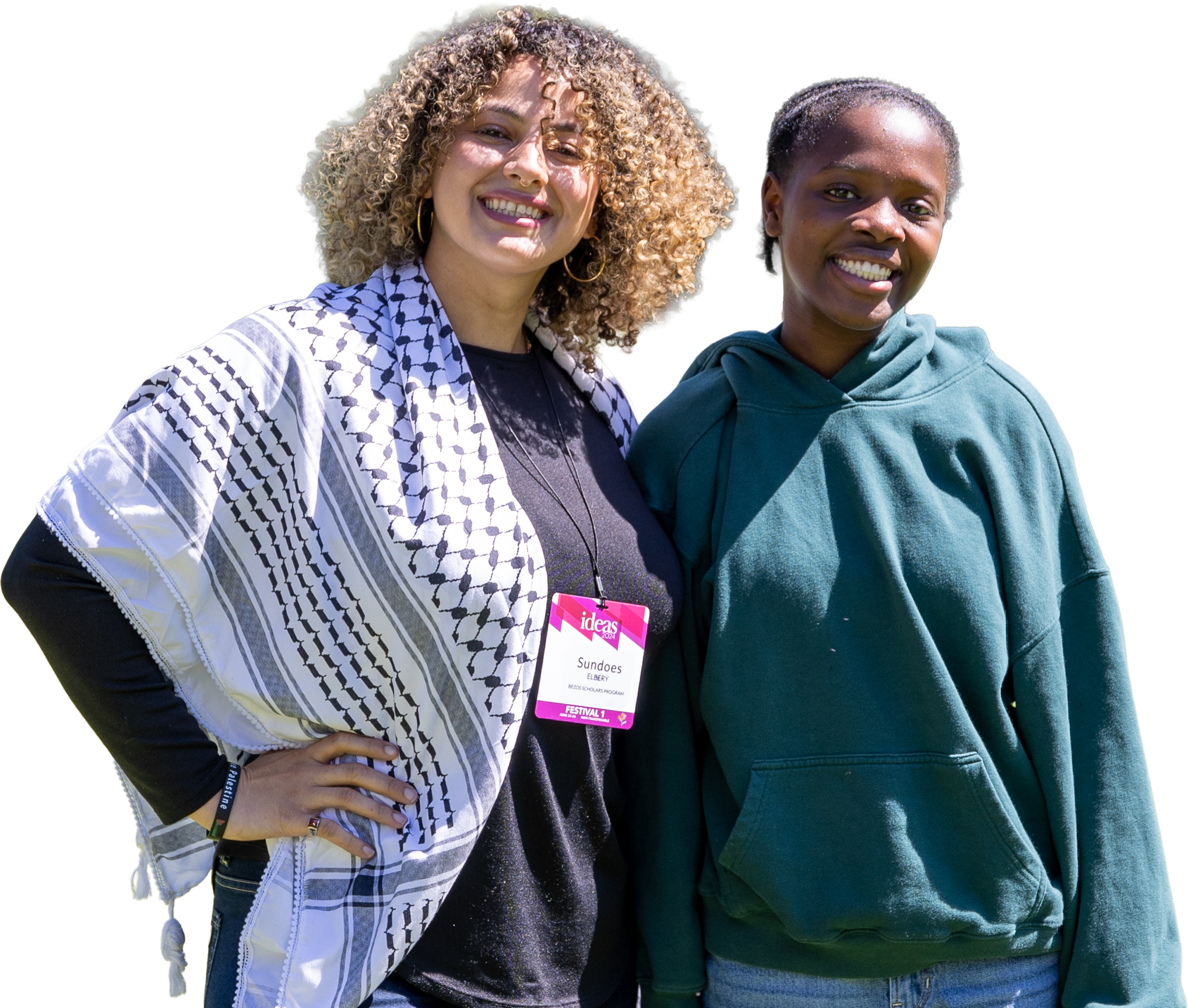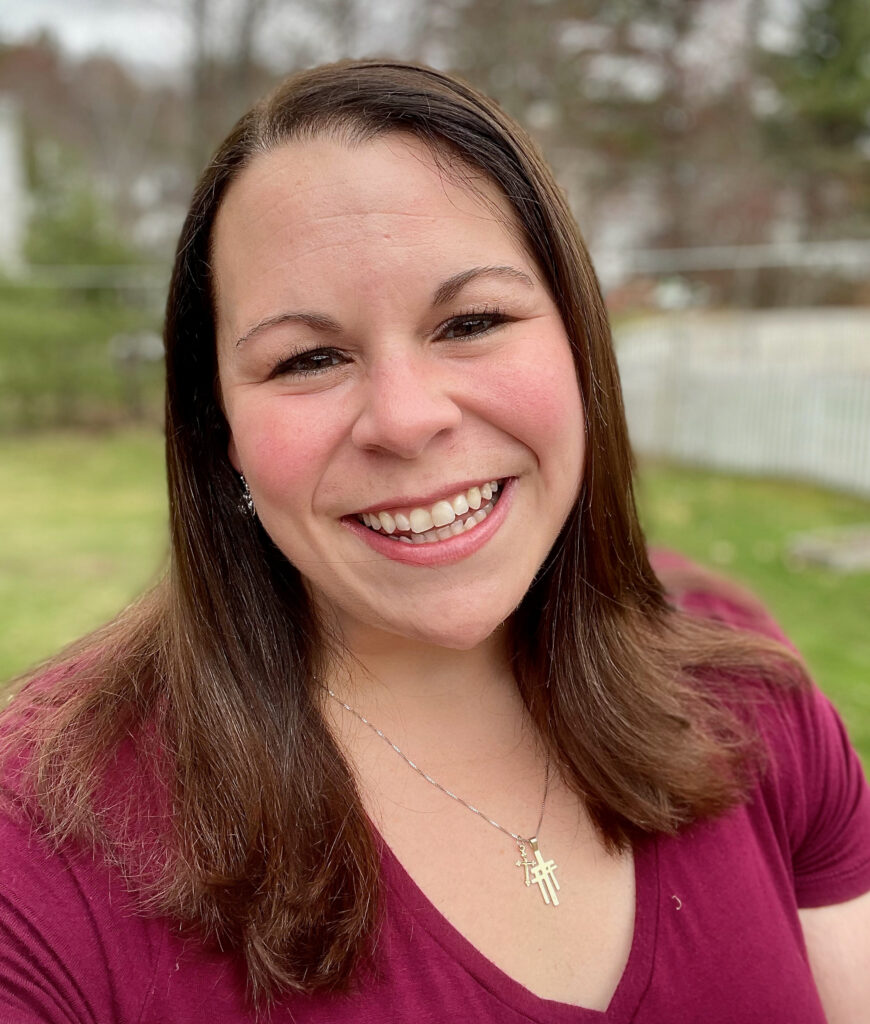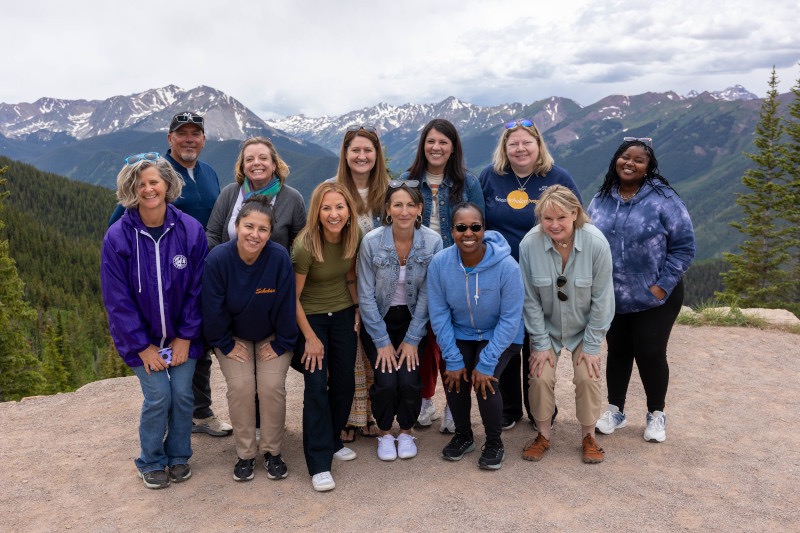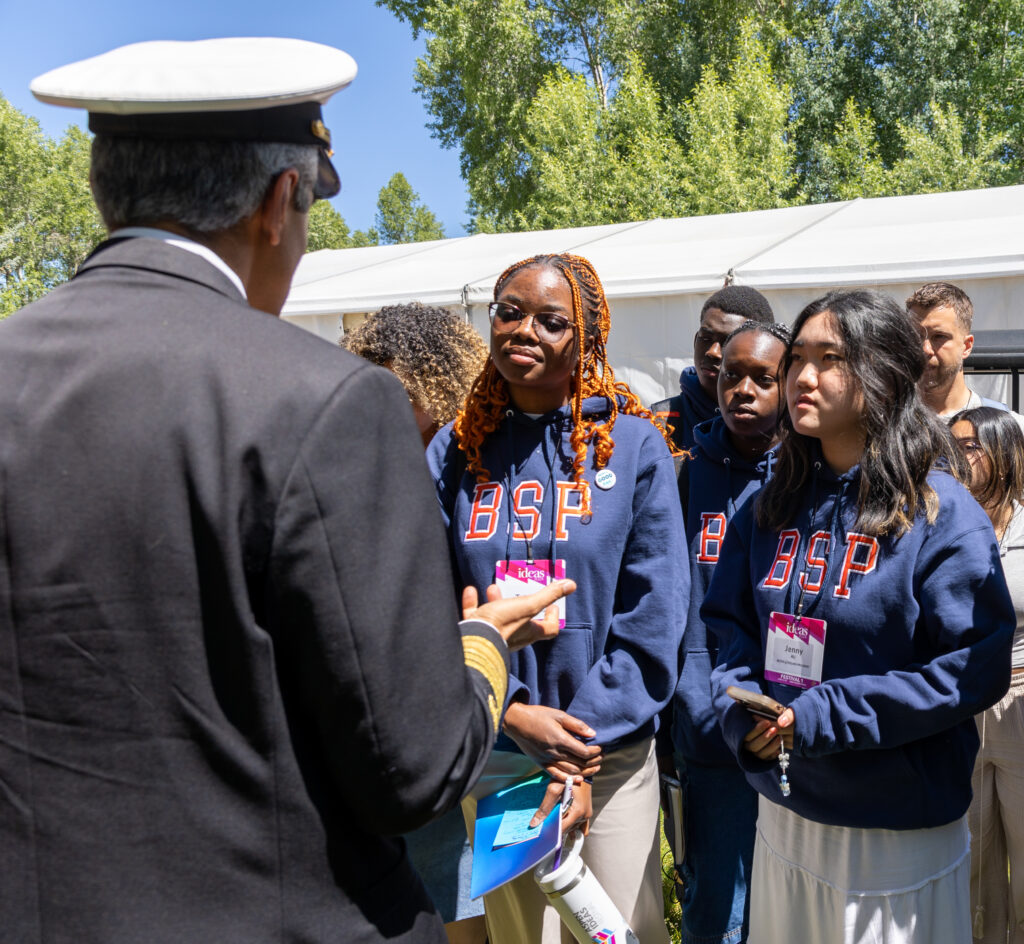Transformative and Regenerative – for Students and Educators
Each Bezos Scholar nominates a school staff member to fully participate with them in the program. It’s a unique opportunity to work closely with a motivated student leader throughout the academic year. Enhance your advocacy skills, reignite or deepen your passion for education, and make a positive impact in your community.

Selected by Students
To be considered for the program, you must be nominated by a student who is applying. Eligible educator nominees must:
- Be a current school staff member, in any position, OR staff member of a community organization that partners with and offers programming and/or resources to a student’s school.
- Plan to return to work at the student’s school/for the organization partnering with their school for the following academic year.
- Be someone who the student connects with and works well with, is supportive of student-led projects, and can commit to program requirements.
Educators can only accept nominations from up to three students from the same school applying in the same year. Educator nominees CANNOT also be an applicant’s parent, guardian, relative or their paid private tutor or counselor.
Being a Scholar has transformed my personal and professional life. I feel energized, confident, and prepared to continue my career as a teacher and leader because of the opportunities provided.

Natalie Davis
Educator Scholar
Your classroom holds tomorrow’s leaders
Educator Role & Commitment
You’ll get a lot from your Bezos Scholars experience—and you’ll give a lot, too. As an educator Scholar, you’ll serve as a mentor to your student Scholars and student-led project teams. You’ll assist students in setting goals and action plans as they launch their Community Change Project.
- Educators should be prepared to fully participate in a year-long program, spending an average of 10-20 hours per month on program-related activities including virtual sessions.
- Virtual sessions are generally twice a month, on the second and fourth Saturdays to accommodate various time zones and school schedules.
- At the end of June, educators join their student on an incredible all-expenses-paid week-long trip to the Aspen Ideas Festival in Aspen, CO.
- Upon returning home, they work alongside students, supporting them in engaging community members to gather insight and ideas for their Community Change Project. The rest of the year is spent participating in Scholar sessions and building a wider team that helps design and implement a student-led project.

Additional information
- Review the Scholar expectations to get a sense of student and educator expectations.
- Learn more about the yearlong program commitment by reviewing our Scholar Journey.
- Find answers to educator questions on our FAQ page.
In recognition of this role and commitment, we offer educators a $1,200 honorarium.
Educator Resources
Read the Educator Flyer for an overview of your role as a BSP Scholar. Explore additional resources to learn and promote Bezos Scholars with your school.

Questions?
Find answers to common questions, whether you’re a student, educator, or community member.